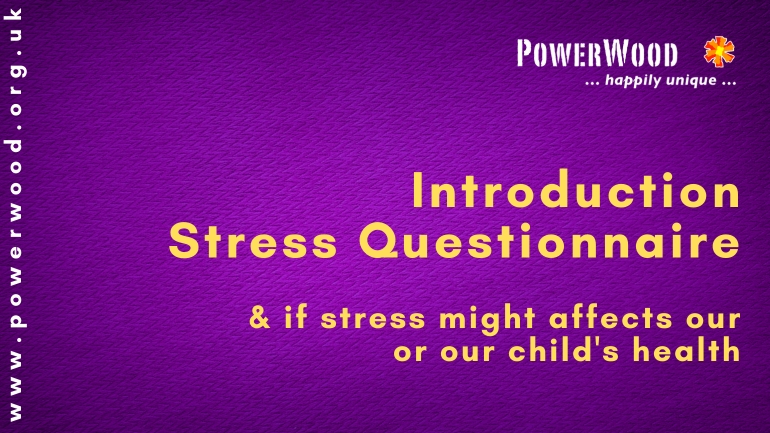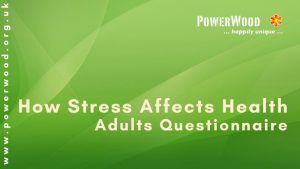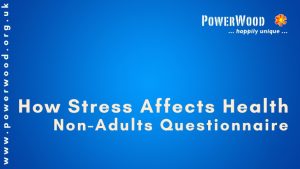
A warm welcome to PowerWood where we celebrate neurodiversity and support families to improve their communication and ability to regulate their emotional reactions.
We believe an essential part of learning to regulate our emotions is to recognise the levels of stress we are experiencing and how it affects us. However, it’s all too easy when life is busy to downplay the significant life events have on us – we all know moving house or divorce can be traumatic, but how much are we affected by stress when we join a new social club or take out a loan?
Easily overstepping your boundaries?
Especially for people with emotional overexcitability (OE) who have developed the corresponding stress response, who are conditioned (or have inherited the habit) to overstep their boundaries and ignore their own needs, it is a very helpful tool to grow awareness of our own stress-levels in combination with our own Baseline and take our stress levels seriously into account enabling us to make informed decisions about how to move our lives forward.

Luckily, there is a Stress Scale Questionnaire that tells us, which we are pleased to offer on our website.
In 1967, psychiatrists Thomas Holmes and Richard Rahe developed the Social Readjustment Rating Scale (SRRS), known more commonly as the Holmes and Rahe Stress Scale. They rated 43 events (called life change units) with a different weight for stress. The more events experienced the higher the score.
This Stress Scale Questionnaire is a helpful tool to raise awareness of our own stress levels and how they might affect our health. Taking our stress levels into account when making small and big decisions about changes will help us reflect on when would be the most helpful time to make any changes as they will often bring extra stress.
What isn’t measured
On top of these acknowledged areas of stress, it has been pointed out that the test does not take into account cultural differences.
Many PowerWood families and individuals experience stressors not mentioned in the scale due to having one or more members who experience overexcitability, high sensitivity and hyper-reactivity, all of which can lead to heightened susceptibility to stress triggers, affecting what we refer to as ‘our Baseline‘, meaning our energy level and emotional resilience.
For example, changes are definitely seen as a stress factor in this test, however, much smaller changes and transitions might be already a challenge to our children, and often to ourselves, and be experienced as a major stressor.
On top of our innate tendency to the extreme experience of stressors, there are some stressors that are not mentioned in the Stress Scale Questionnaire and are present in our niche of families and individuals living with intensity, sensitivity and hyper-reactivity:
- Living in a world with even professionals have little knowledge and understanding about twice-exceptionality and neurodiversity
- Having a child with Special Educational Needs
- Fighting for effective support for our child or ourselves in the educational and/or mental health system,
- Working towards an education, health and care (EHC) plan for our child, making sure it is effective and respectful of the child and family
- Being frowned upon for our parenting approach by our family and friends and educational and medical professionals who do not understand the needs of our children
- As an individual being regarded to be the odd one out
- Having a child having (mental) health issues and not being offered an effective treatment
- Having (mental) health issues and not being offered an effective treatment
- Having had a childhood with many Adverse Childhood Experiences e.g. abuse, neglect etc.
Take the Stress Scale Questionnaire
To take the test, please visit here for adults, and here for non-adults. Identifying our stress levels can help us nurture our Baseline, which is why tests such as these are really helpful in deepening our self-understanding while offering us a vital signpost that we need to be taking good care of ourselves.
This test is a useful exercise in determining what exposure you have had to stressful life events. However, keep in mind they are not taking into account all of our specific niche.


